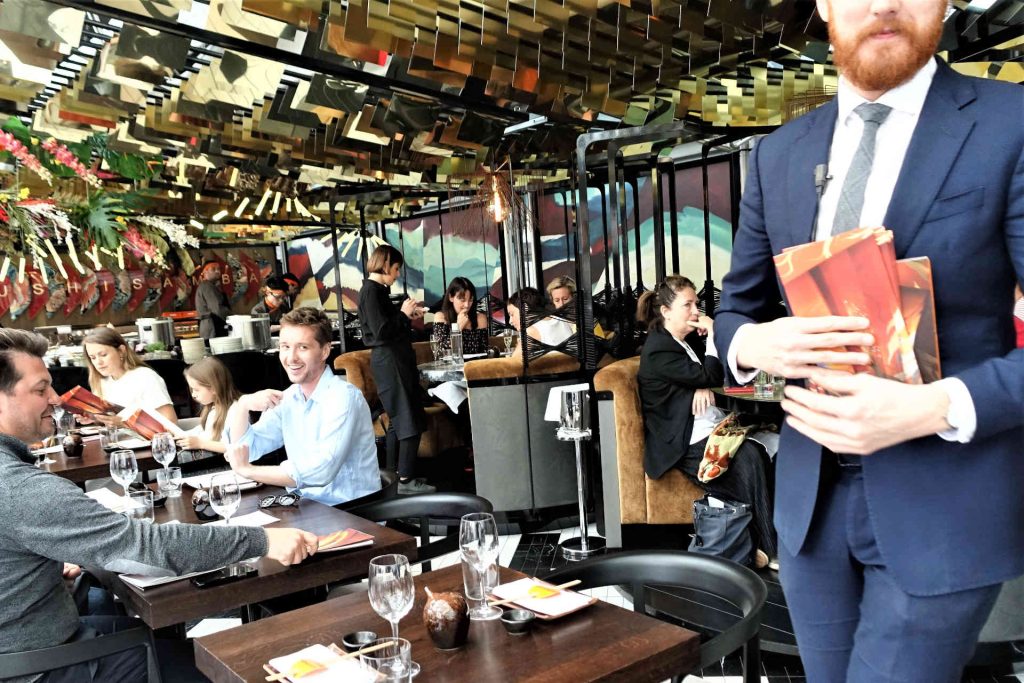Individual gastronomy has a great opportunity to position itself as a unique and distinctive alternative in the hospitality industry. Individuality is its greatest USP: establishments that stand out through their uniqueness offer guests a personalized and interactive experience that can also be controlled through the use of technologies such as smartphones, without replacing personal hospitality.
Especially at a time when revenue kills hospitality is becoming a global challenge, emotional, analog hospitality remains the decisive factor. Revenue is important, but successful restaurateurs are good hosts and can still do the math.
The interplay of efficient digitalization for internal processes and authentic, human interaction with guests is the key. Genuine emotions, authentic storytelling and analog experiences through F&B, service, design and atmosphere create lasting impressions. Gastronomy needs and brings experience and emotion. This also includes the pleasure experience. Individual gastronomy stands for good food: home-cooked dishes made from high-quality products, as natural as possible and from regional producers, plus vintner wines, home-made juices, high-quality teas and coffee specialties.
New concepts such as multi-use spaces (combination of café, co-working, bar and event location) or experience gastronomy with interactive elements, live shows and storytelling menus (e.g. theater gastronomy) offer innovative ways to appeal to guests. Examples such as the Social Kitchen in Vienna with cooking courses combined with shared dinners and networking or the Chamäleon Theater in Berlin (live performances with a 4-course menu) show how creative formats can be successfully implemented.
The pandemic has triggered a shakeout in the industry. What remains are often economically stronger and more professional providers who work more efficiently with well thought-out concepts and digital support. At the same time, higher wages are required for fewer employees, which increases the focus on excellent analog service and individually tailored offers. A clear profile, smaller but well thought-out menus, personalized offers in the form of menu options or a boutique character highlight individual gastronomy. Digitalization optimizes processes, but emotional, analogue hospitality remains crucial – the dining out experience is and will remain indispensable.

Las Vegas is known for its long nights, which makes places that do mornings really well all the more important. Between the Strip and downtown, there are a surprising number of spots where breakfast and coffee are not just an afterthought, but are deliberately celebrated. It’s these places that make all the difference: quiet, high-quality, and offering just the right amount of enjoyment before the day gets going.
Fine dining, steak, sushi, Mexican cuisine, and Italian dolce vita – Las Vegas has long been more than just buffets and shows. We sampled some of the city’s most exciting restaurants – from complex Chinese flavors and traditional American steakhouses to Japanese presentation and Mexican sensuality.
Vegan and reduced-sugar desserts that last, shine, and impress guests: Sugar is not the enemy, but it is not the solution either. Modern patisserie thinks ahead—more precisely, more plant-based, more consciously.
Away from the “sugar = taste” reflex, toward texture intelligence, aroma control, and clean technique. Modern patisserie works vegan, reduced-sugar—and often completely without classic table sugar. The matrix, process, and calculation are crucial. About desserts that perform professionally: stable, precise, highly aromatic.


Individual gastronomy has a great opportunity to position itself as a unique and distinctive alternative in the hospitality industry. Individuality is its greatest USP: establishments that stand out through their uniqueness offer guests a personalized and interactive experience that can also be controlled through the use of technologies such as smartphones, without replacing personal hospitality.
Especially at a time when revenue kills hospitality is becoming a global challenge, emotional, analog hospitality remains the decisive factor. Revenue is important, but successful restaurateurs are good hosts and can still do the math.